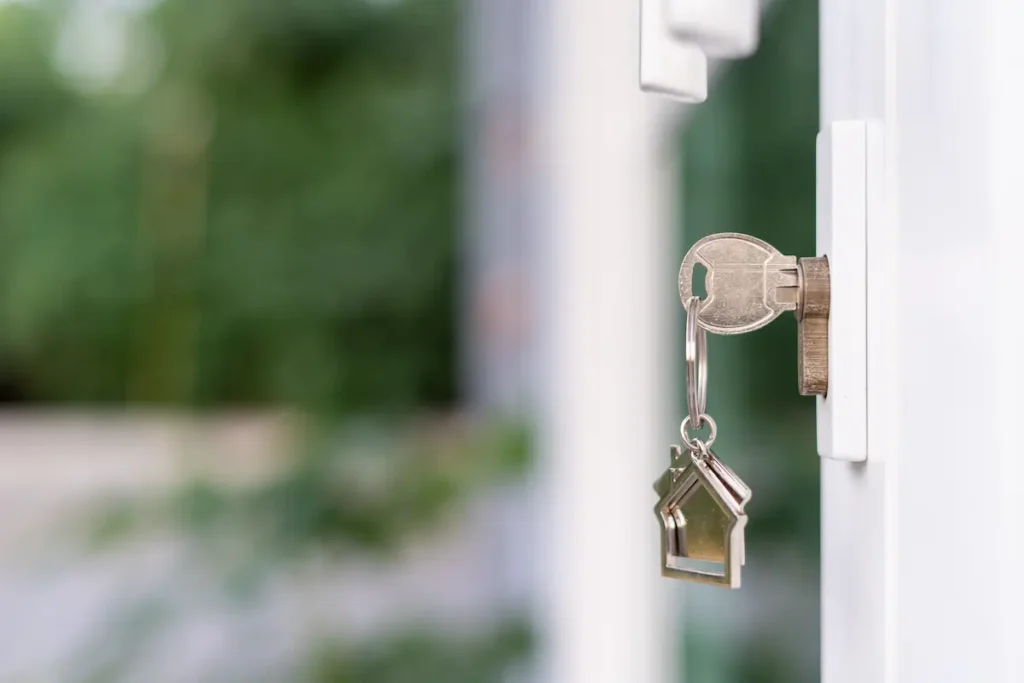Whether you’ve planned to become a rental property owner or find yourself with a house you don’t want to sell just yet, renting out your home can be a lucrative financial investment. Before you jump in, it’s important to understand the process and procedures that come with running a rental property.
It may seem simple on the surface—purchase a house, find people to live in it, and collect your money each month. But a lot more goes into becoming a successful landlord. Owning a rental property is a business and to be successful you need to treat it that way.
In this guide, we’ll show you how to rent your house in Seattle, Bellevue, Kirkland, and Redmond.
Decide What Kind of Rental Property Your Home Will Be
The first step in the process of renting out your home is assessing your potential rental situation. If you already have a home or have specifically purchased a home to rent in Bellevue, Kirkland, or Redmond, you may already have an idea of how you want to use the property.
There are two main categories of rentals—short-term and long-term rentals.
Short-term rentals—anything less than 30 days are increasingly popular in the Eastside, especially with the rise of platforms like Airbnb and Vrbo. However, they come with their own set of challenges, including frequent tenant turnover and the need for constant maintenance. Bellevue, for example, has strict rules about short-term rentals and requires a business license for any property rented out on platforms like Airbnb.
Long-term rentals—typically 12-month leases—are more common in the Eastside suburbs, where professionals and families often seek stable, long-term housing. Redmond, with its proximity to tech companies like Microsoft, is particularly attractive to long-term renters. Many landlords in the area set up LLCs to protect themselves legally and simplify tax filings.
There are pros and cons to both types of rental properties:
Short-term rental pros and cons
- Pro: You can still use the property whenever you want.
- Pro: You can use factors like seasonality and market demand to get the best rate each night.
- Pro: Your property may experience less wear and tear due to the occasional occupants.
- Con: You’ll be responsible for cleaning the property after every occupant.
- Con: You may have a hard time finding renters during the off-season.
- Con: You run the risk of having rowdy guests, as you have less ability to screen potential guests.
Long-term rental pros and cons
- Pro: You’ll have a consistent income month-to-month.
- Pro: You can pass the utilities on to your tenants.
- Pro: You have less turnover in tenants.
- Pro: You have more control over who is living in your property thanks to in-depth tenant screening.
- Con: In a worst-case scenario you could find yourself tied to a less-than-ideal tenant.
- Con: You won’t be able to use the home for personal use.
- Con: There will be more daily wear and tear on the property and appliances.
There is no right or wrong answer to which kind of rental property you own—it’s a personal choice based on what works best for you and your lifestyle.
Calculate Your Expenses
To be a successful landlord, you must keep an eye on expenses. It’s easy to get caught up in the money coming in, but if you lose track of money going out, you may find yourself at a loss.
Think through all the fixed and variable expenses you’ll incur each month so you can have a clear understanding of what you’ll be spending each month. Some of the expenses you should consider include, but are not limited to:
- Mortgage payments
- Landlord insurance
- HOA fees, if your rental is part of an HOA
- Business and rental licenses
- Property management services
- Landscaping
- Pest prevention
- HVAC servicing
- Gutter cleaning
- Pool maintenance and operation
- Snow removal
- Clogged drains or toilets
- Electrical repairs
- Appliance repairs
- Listing your property on rental websites
- Photography of property
- 3D tour or video
- Accounting or tax professional fees
- Legal fees or attorney
- Tenant verification tools
- Taxes
- Ongoing maintenance
- Emergency repairs
In the Eastside’s competitive rental market, it’s also important to factor in the costs of marketing your property (professional photography, online listings) and other operational expenses.
One of the biggest financial issues landlords face is emergency repairs. Landlords need to set aside money each year to be used for any potential issues that arise. A good rule of thumb is to set aside 10% of your property’s value each year for maintenance.
Familiarize Yourself with Landlord-Tenant Laws
Understanding the laws that govern rental properties is essential for any landlord, especially in cities like Bellevue, Kirkland, and Redmond, where rental regulations can vary. Washington State has specific landlord-tenant laws you need to know, including:
- Residential Landlord-Tenant Act (RLTA): This law outlines the rights and responsibilities of both landlords and tenants, covering areas like leases, rent, deposits, and eviction procedures.
- Fair Housing Act: Prohibits discrimination based on race, color, religion, sex, national origin, familial status, or disability, ensuring equal opportunity for all tenants in rental housing.
- Security Deposit Law: Requires landlords to provide a written statement of condition at move-in and to return security deposits (or provide an itemized deduction) within 30 days of lease termination.
- Eviction Laws (Unlawful Detainer Act): Specifies the legal process for eviction, including the required notice periods (e.g., 3-day notice for non-payment of rent), and court procedures landlords must follow.
- Rent Control and Rent Increase Laws: Washington State does not have rent control, but landlords must provide at least 60 days written notice before increasing rent on month-to-month leases.
- Repair and Maintenance Obligations: Landlords must ensure the property is habitable and maintain essential services, such as plumbing, heating, and structural integrity, in compliance with local building codes.
- Landlord’s Right of Entry: Landlords must provide at least two days’ notice before entering a tenant’s unit, except in emergencies, to respect tenant privacy and avoid illegal entry.
- Lead-Based Paint Disclosure: Landlords of properties built before 1978 must inform tenants about potential lead hazards, providing them with a lead-based paint disclosure form.
- Smoke Detector and Carbon Monoxide Laws: Landlords must provide and maintain working smoke detectors and carbon monoxide detectors in rental units to meet state safety standards.
For those renting in the Eastside, specific city ordinances, like those in Bellevue, may require additional licenses or rental registration, especially for short-term rentals.
Speak to Your Insurance Agent
When you own your home, you protect it with homeowner’s insurance. But when you lease your home out to tenants, you need to purchase landlord insurance. Landlord insurance provides critical protection against liability and financial losses that a standard homeowner’s insurance policy wouldn’t cover. Speaking to your insurance agent before you rent your home is a step in the process you can’t afford to take. And if you’re purchasing a home for the sole purpose of renting it, most mortgage companies require landlord insurance.
Here are three ways landlord insurance can protect you and your investment property:
- Property Damage Protection: Landlord insurance covers damage to the structure caused by events like fire, vandalism, or severe weather, helping you avoid out-of-pocket expenses for repairs.
- Liability Coverage: If a tenant or guest is injured on your property, landlord insurance can protect you from costly legal claims and medical expenses.
- Lost Rental Income: If your property becomes uninhabitable due to a covered event (e.g., fire or water damage), landlord insurance can help cover lost rental income during repairs.
If you’re renting in Kirkland, which has a mix of urban and residential properties, having the right insurance coverage is crucial due to the high demand for rental properties and the potential for increased liability.
Determine How Much Rent to Charge
Setting the right rental price in Bellevue, Kirkland, or Redmond requires research. These Eastside communities are in high demand, especially for well-maintained homes, so determining the right price is key to attracting quality tenants. Look at similar properties in the area to understand competitive rates. Consider factors like:
- Size of the home
- Number of bedrooms and bathrooms
- Amenities (e.g., garage, backyard, views)
- Neighborhood and proximity to work hubs (e.g., Microsoft in Redmond)
While rent prices are generally high in the Eastside, setting a price that’s too high can deter potential tenants. Conversely, underpricing can leave money on the table
Get Your Property Move-In Ready
Getting move-in ready is going to be different for every property. Before you start marketing your property or showing it to tenants, ensure it is looking its best. Tackle all the necessary cosmetic work that will make your property stand out—deep clean the property, add a fresh coat of paint to the walls, patch holes and cracks, wash windows and window treatment, clean the carpets, and polish hardwood floors.
Once the aesthetics are in a good place, ensure all the systems and fixtures are working properly—check the appliances, AC units, water heaters, faucets, light switches, and garage doors. These are the things that tenants tend to test during a walkthrough—you can make a better impression and save yourself the hassle of arranging repairs and vendor visits soon after move-in.
Market Your Property
Now that your property is ready for tenants, it’s time to find those tenants. Effective marketing is key to attracting quality tenants and minimizing vacancy periods when renting out your home. Getting the word out about your property is crucial for maximizing visibility and securing reliable tenants.
Once you have professional photography of your property, list your rental on popular rental websites like Zillow, Apartments.com, and Rent.com. Be sure to put your property in the best light with high-quality photos and detailed descriptions. You can also turn to real estate platforms like Redfin or Realtor.com. These sites tend to cater to high-quality, long-term tenants.
Screen Potential Tenants
Arguably one of the most important tasks landlords are responsible for is screening potential tenants. You have to find tenants that you can trust, who you believe will take good care of your property and pay their rent on time. Landlords also need to be aware of the implications of landlord-tenant laws on the screening process—the Fair Housing Act is in place to ensure there is no discrimination during the process.
In Washington State, landlords are allowed to run:
- Background Checks: You can conduct background checks to assess criminal history, but the information must be relevant to tenancy and can be no more than 7 years old.
- Credit Reports: Landlords are allowed to pull credit reports to assess a potential tenant’s financial responsibility. However, the applicant must give written consent before you pull the report. Washington law also prohibits discrimination based solely on credit history.
- Income Verification: It’s legal to verify a tenant’s income to ensure they can afford the rent.
- Rental History Checks: You can contact previous landlords to verify rental history, including payment history and whether the tenant followed the lease terms.
Manage Your Rental Property
Once you’ve done everything to rent out your house, you now need to commit to managing it. You’ll need to be available 24/7/365 in case of an emergency with the property. You need to manage rent payments, routine maintenance, tenant complaints, and much more. For some, the ongoing management work of running a rental property is part and parcel of the job. For others, hiring a professional property management company to take that responsibility on is the best solution.
Renting out a home in the Eastside suburbs of Seattle can be a rewarding investment, but it requires careful planning, attention to detail, and understanding local laws. By following these steps, you can navigate the rental process smoothly and effectively manage your property for long-term success.
If you need help with property management in Bellevue, Kirkland, or Redmond, contact SJA Real Estate to learn more about our services.
Renting Out Your House FAQs
Do I need a business license to rent my house in Seattle’s Eastside?
In these Eastside cities, you may need to register your rental with the local government. For short-term rentals, a business license is required, especially in Bellevue.
Is the Eastside a landlord-friendly market?
The Eastside generally leans toward tenant-friendly regulations, but landlords still have rights to set rent prices, enforce leases, and maintain their properties, as long as they follow local laws.
Can I rent out my home as a short-term rental in Bellevue?
Yes, but you will need to comply with Bellevue’s short-term rental regulations, including registering with the city and obtaining the necessary permits.






